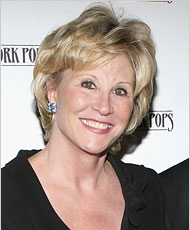Search the latest and greatest job opportunities in sport

First published on LEADERS Magazine
Breaking barriers, making a difference
Sports ‘champion’ the full person.
Olympians may start from the simplest circumstances, giving hope to the rest of us mere mortals. Perhaps the medals, the world records, the accolades, and groundbreaking moments come later, but that’s not what drives everyone as they launch their legendary careers.
Donna de Varona remembers riding the waves on her father’s back in the beautiful and powerful Pacific Ocean off San Diego, where she grew up. She recalls loving to be with her older brother and tagging along with him to baseball practice, only to be told “girls can’t play.” No matter. She went to the community pool and then to a YMCA program where she and other girls were welcome to swim. And swim she did – all the way to a Gold-winning U.S. Olympic team in Rome in 1960 when she was just 13. Four years later, in Tokyo, she would win her first individual Gold for the women’s 400-meter individual medley and set an Olympic record while in the process. She was also a member of the team that captured Gold in a world record-breaking 400 freestyle relay performance. At a very young age, she had a title to defend.
The great leveler
Despite her youth and the thrill of being part of the global village, she noticed barriers everywhere she looked: for women, for blacks, for developing relationships with the Russians in the Cold War era. She realized early on that sports could be the great leveler, especially for women. Everyone in the Olympic Village knew what it took to be a champion – they all felt an instant connection because of hard work, focus, drive, and dedication – and for her particular sport, the mind-numbing “six to eight years of practice for a five-minute opportunity” to win in the water. “No matter where we came from, what our differences, we all spoke the language of athletes,” says Donna. “It was our common bond.”
With her fame came cover shoots for popular magazines like Look, Sports Illustrated, and Life, and the press voting her “The Most Outstanding Woman Athlete in the World.” Still, for all of her accolades and recognition, she learned that women in the early 1960s had few opportunities in high school or college sports. Donna retired from swimming at age 17 and flew to New York to knock on the door of what was then the male-dominated world of sports broadcasting. As she explains, she wanted to stay close to the sport she loved and had done so much to elevate in the world’s consciousness.
Covering the Olympics for the networks was the one way she could ”bear to leave it” since she would remain involved. She appeared on ABC’s Wide World of Sports, the youngest and one of the first women to do so, where she added an Emmy as well to her gold medals and world records. She covered 17 Winter and Summer Olympics, and found she had a solid platform to become an activist for youth sport and fitness opportunities in the U.S.
Always swimming, never treading water
She helped change the landscape through five terms on the President’s Council on Physical Fitness and Sports. Her work includes being an ardent promoter and defender of the landmark Title IX legislation and the establishment of the Women’s Sports Foundation with her friend Billie Jean King. Today she serves on the executive board of Special Olympics International and is a member of the International Olympic Committee’s Women and Sport Commission.
If she is passionate about what sports do for women, she speaks from the best platform of all: her own experience. “I learned endurance, I learned how to compete, I learned focus. It taught me that women need sports so we can learn how to successfully compete in the world in which we live while developing ourselves as full human beings.” Perhaps, most importantly, she adds, “It has given me a happier and more purpose-driven life.” Jump in, everyone, the water is indeed fine.
Donna de Varona is a pioneer in athletics and broadcasting. In 1974, de Varona helped establish the Women’s Sports Foundation and as its first President pioneered the fight for increasing athletic opportunities for women in high school, college, and the Olympics through her work as a consultant to the U.S. Senate on Title IX and Olympic legislation. De Varona was also Chair of the U.S.-hosted 1999 Women’s Soccer World Cup. de Varona serves on the executive board of Special Olympics International and is a member of the International Olympic Committee Women and Sport Commission. She is also Chairman of the International Swimming Hall of Fame and serves on the U.S. Department of State’s Empowering Women and Girls Through Sports Council. An ambassador for Tony Blair’s Beyond Sport initiative, de Varona is a UCLA graduate and President of DAMAR Productions, a marketing, consulting, and events advisory company.
Copyright © 2013 LEADERS Magazine, Inc.
Search the latest and greatest job opportunities in sport